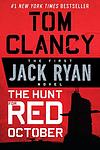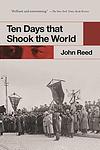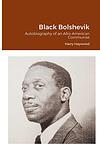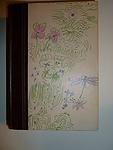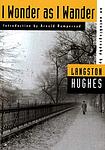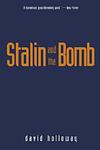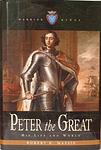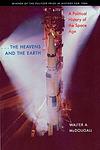The Greatest American "Soviet Union" Books of All Time
Click to learn how this list is calculated.
This list represents a comprehensive and trusted collection of the greatest books. Developed through a specialized algorithm, it brings together 300 'best of' book lists to form a definitive guide to the world's most acclaimed books. For those interested in how these books are chosen, additional details can be found on the rankings page.
Genres
The category of "Soviet Union" books encompasses literature that explores the history, politics, culture, and society of the former Soviet Union. These books may cover topics such as the rise and fall of communism, the Cold War, the Soviet economy, the lives of ordinary citizens, and the impact of Soviet policies on the world. They may also include memoirs, biographies, and fiction set in the Soviet Union or written by Soviet authors. Overall, the category of "Soviet Union" books provides a comprehensive look at one of the most significant and complex political systems of the 20th century.
Countries
Date Range
Reading Statistics
Click the button below to see how many of these books you've read!
Download
If you're interested in downloading this list as a CSV file for use in a spreadsheet application, you can easily do so by clicking the button below. Please note that to ensure a manageable file size and faster download, the CSV will include details for only the first 500 books.
Download-
1. The Hunt for Red October by Tom Clancy
This novel details the story of a high-ranking Russian submarine captain who aims to defect to the United States without sparking a war between the two nations. The American government, upon receiving information about the captain's intentions, sends its best analyst to aid in the successful defection of the captain and his crew. The novel is a thrilling tale of espionage, filled with suspense and detailed technical descriptions of military technology and procedure.
-
2. Ten Days That Shook the World by John Reed
This book provides a firsthand account of the Russian Revolution in 1917, specifically focusing on the ten days during which the Bolsheviks seized power. The author, an American journalist, presents a detailed chronicle of the events, people, and emotions during this tumultuous period. His narrative is filled with vivid descriptions and passionate portrayals of the revolutionaries, offering an intimate look into this significant historical event.
-
3. The Crucible by Arthur Miller
Set during the Salem Witch Trials in the late 17th century, this play explores the hysteria, deceit, and religious extremism that plague a small Puritan village in Massachusetts. The protagonist, a flawed but essentially good man, is caught in a web of accusations when young girls in the town start displaying strange behavior and accusing others of witchcraft. The ensuing trials reveal not only the dangers of mass hysteria and false accusations, but also the destructive power of societal pressures and the human capacity for both cruelty and heroism.
-
4. Lenin's Tomb: The Last Days of the Soviet Empire by David Remnick
This book provides an in-depth account of the final days of the Soviet Union, focusing on the period from 1989 to 1991. It explores the political, economic, and social factors that led to the collapse of the Soviet empire, including the role of key figures such as Mikhail Gorbachev, Boris Yeltsin, and others. The author, a journalist who lived in Moscow during this time, combines historical analysis with personal observations and interviews, offering a unique perspective on this significant period in world history.
-
5. The Yiddish Policemen's Union by Michael Chabon
In an alternate reality where Jewish refugees found sanctuary in Alaska during World War II, the book follows a homicide detective in the Yiddish-speaking metropolis of Sitka as he investigates the murder of a former chess prodigy. The detective's quest takes him from the city's seedy underbelly to the highest echelons of power, and he uncovers a vast conspiracy that threatens the very existence of the Jewish homeland in Alaska. The novel is a blend of detective fiction, alternate history, and Jewish humor.
-
6. The Russian Revolution by Richard Pipes
"The Russian Revolution" offers a comprehensive and detailed account of the events leading up to, during, and following the Russian Revolution of 1917. The author presents a thorough exploration of the socio-political climate of the time, the key figures involved, and the profound impact the revolution had on Russia and the wider world. The book also delves into the ideologies that fueled the revolution, the subsequent rise of the Soviet Union, and the enduring influence of these events on global history.
-
7. Black Bolshevik by Harry Haywood
This book is an autobiography that chronicles the life of an African American communist and his involvement in the Communist Party during the early to mid-20th century. It provides a detailed account of his experiences with racism within the United States, his participation in the Communist Party's efforts to combat racial injustice, and his work in the Soviet Union, where he sought to learn from and contribute to the international communist movement. The narrative offers a unique perspective on the intersections of race, class, and political ideology, highlighting the struggles and contributions of African Americans within the broader context of global communism and the fight against imperialism and racial oppression.
-
8. The Muses Are Heard by Truman Capote
In this non-fiction account, the narrative follows an eclectic American theater troupe as they embark on a groundbreaking tour to the Soviet Union during the Cold War. The book provides a candid and often humorous look at the cultural exchange, the behind-the-scenes drama, and the clash of ideologies that unfolds as the performers present an American musical to a Russian audience. The author's sharp observations and detailed reportage offer a unique glimpse into the challenges and triumphs of artistic collaboration across political divides, highlighting the universal power of performance to bridge cultural gaps.
-
9. Tlooth by Harry Mathews
"Tlooth" is a surreal and experimental novel that follows a group of inmates from a Siberian prison as they embark on a global quest for revenge against a sinister doctor. The narrative, full of eccentric characters and bizarre events, unfolds in a nonlinear fashion, incorporating elements of various genres, such as science fiction, detective fiction, and adventure, as well as references to music, languages, and mathematics. The story is marked by its complex structure, playful use of language, and exploration of themes such as identity, reality, and the nature of storytelling.
-
10. Europe Central by William T. Vollmann
The novel explores the moral decisions made by individuals during the most challenging circumstances, specifically focusing on the Eastern Front during World War II. It presents a series of interconnected stories revolving around key historical figures and events, such as the siege of Leningrad, the Soviet invasion of Germany, and the lives of famous composers and artists during this period. The book delves into the complexities of love, betrayal, sacrifice, and survival in the face of totalitarian regimes and war, highlighting the individual's struggle against the overwhelming forces of history.
-
11. I Wonder As I Wander by Langston Hughes
In this autobiographical work, the author takes readers on a journey through his varied experiences as a young African American man during the early 20th century. Spanning continents and cultures, he recounts his travels from the United States to the Soviet Union, Asia, and Europe, sharing his observations on race, politics, and the human condition. His narrative weaves together personal anecdotes with broader social commentary, offering insights into the life of a creative mind seeking understanding and connection in a complex world. Through his wanderings, the author explores not only the diverse landscapes and societies he encounters but also delves into the depths of his own identity and the universal quest for artistic expression and freedom.
-
12. Gulag: A History by Anne Applebaum
"Gulag: A History" provides an in-depth historical account of the Soviet Union's forced labor camp system, known as the Gulag. The book explores the inception of these camps during the reign of Vladimir Lenin, their expansion under Joseph Stalin, and their eventual decline and closure. It also delves into the daily lives of the prisoners, their hardships, and the brutal conditions they endured. The book is based on a wealth of archival material, personal interviews, and memoirs, offering a comprehensive understanding of one of the darkest periods in human history.
-
13. Stalin And The Bomb by David Holloway
"Stalin and the Bomb" is a comprehensive historical analysis that explores the development of the Soviet atomic bomb during Joseph Stalin's regime. The book delves into the political, scientific, and military aspects of the Soviet nuclear program, highlighting the role of espionage, the contributions of prominent scientists, and the intense state control under Stalin. It examines how the Soviet Union, despite various challenges, managed to break the United States' nuclear monopoly in the post-World War II era, significantly altering the global balance of power and initiating a prolonged Cold War nuclear arms race.
-
14. The Dead Hand: The Untold Story of the Cold War Arms Race and Its Dangerous Legacy by David Hoffman
This book provides an in-depth exploration of the Cold War arms race, focusing on the creation, development, and deployment of nuclear and biological weapons by both the United States and the Soviet Union. It also delves into the dangerous legacy these weapons have left behind, including the threat of nuclear proliferation and bioterrorism. The book combines historical analysis with first-hand accounts and interviews, offering a comprehensive and chilling examination of a critical period in world history.
-
15. Peter the Great: His Life and World by Robert K. Massie
The book is a detailed biography of Peter the Great, the Tsar of Russia from 1682 until his death in 1725. It explores his life, his reign, and the profound impact he had on Russia and the world. The book delves into his efforts to modernize Russia, his military campaigns, his efforts to expand Russia's territory, and his creation of a new capital, St. Petersburg. It also examines his personal life, including his marriages, his children, and his complex personality. The book paints a vivid picture of a man who was a towering figure in Russian history and a transformative leader.
-
16. The Heavens and the Earth by Walter A. McDougall
"The Heavens and the Earth" explores the history of the Space Age, focusing on the political, cultural, and technological developments that led to the exploration of space. It delves into the Cold War rivalry between the United States and the Soviet Union and how it fueled the space race. The book also examines the role of governments, private industry, and popular opinion in shaping the trajectory of space exploration. It provides a comprehensive view of how the Space Age has influenced and been influenced by broader societal trends.
-
17. Khrushchev: The Man and His Era by William Taubman
This biography offers an in-depth look into the life and political career of Nikita Khrushchev, the former leader of the Soviet Union. The book delves into Khrushchev's rise to power, his controversial role in the Cuban Missile Crisis and his relationships with other world leaders. It also explores his efforts to reform the Soviet Union, his eventual downfall, and his lasting impact on the country and the world.
-
18. George F. Kennan: An American Life by John Lewis Gaddis
This biography provides an in-depth look at the life of George F. Kennan, an influential American diplomat and historian during the Cold War. It explores his role in shaping American foreign policy, including his advocacy for a "policy of containment" towards the Soviet Union. The book also delves into Kennan's personal life, his philosophical beliefs, and his later criticisms of American policy, offering a comprehensive portrait of a complex and significant figure in 20th-century history.
Reading Statistics
Click the button below to see how many of these books you've read!
Download
If you're interested in downloading this list as a CSV file for use in a spreadsheet application, you can easily do so by clicking the button below. Please note that to ensure a manageable file size and faster download, the CSV will include details for only the first 500 books.
Download